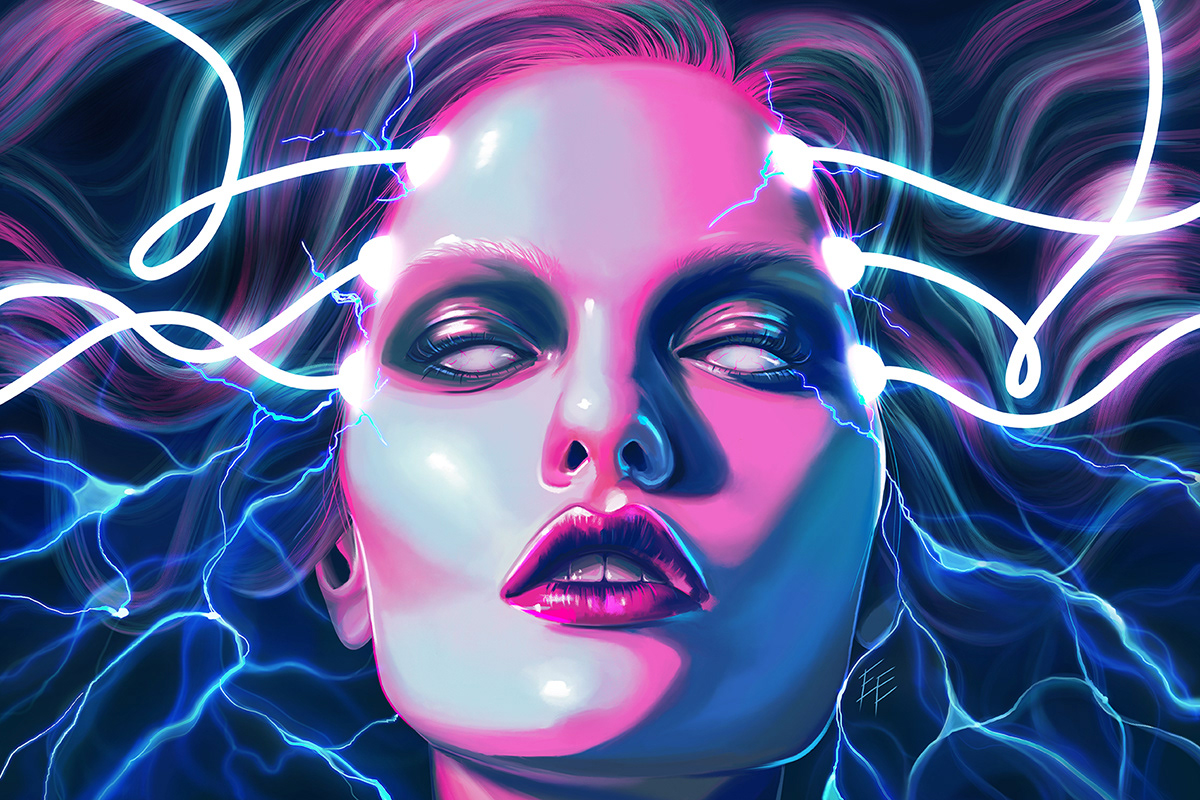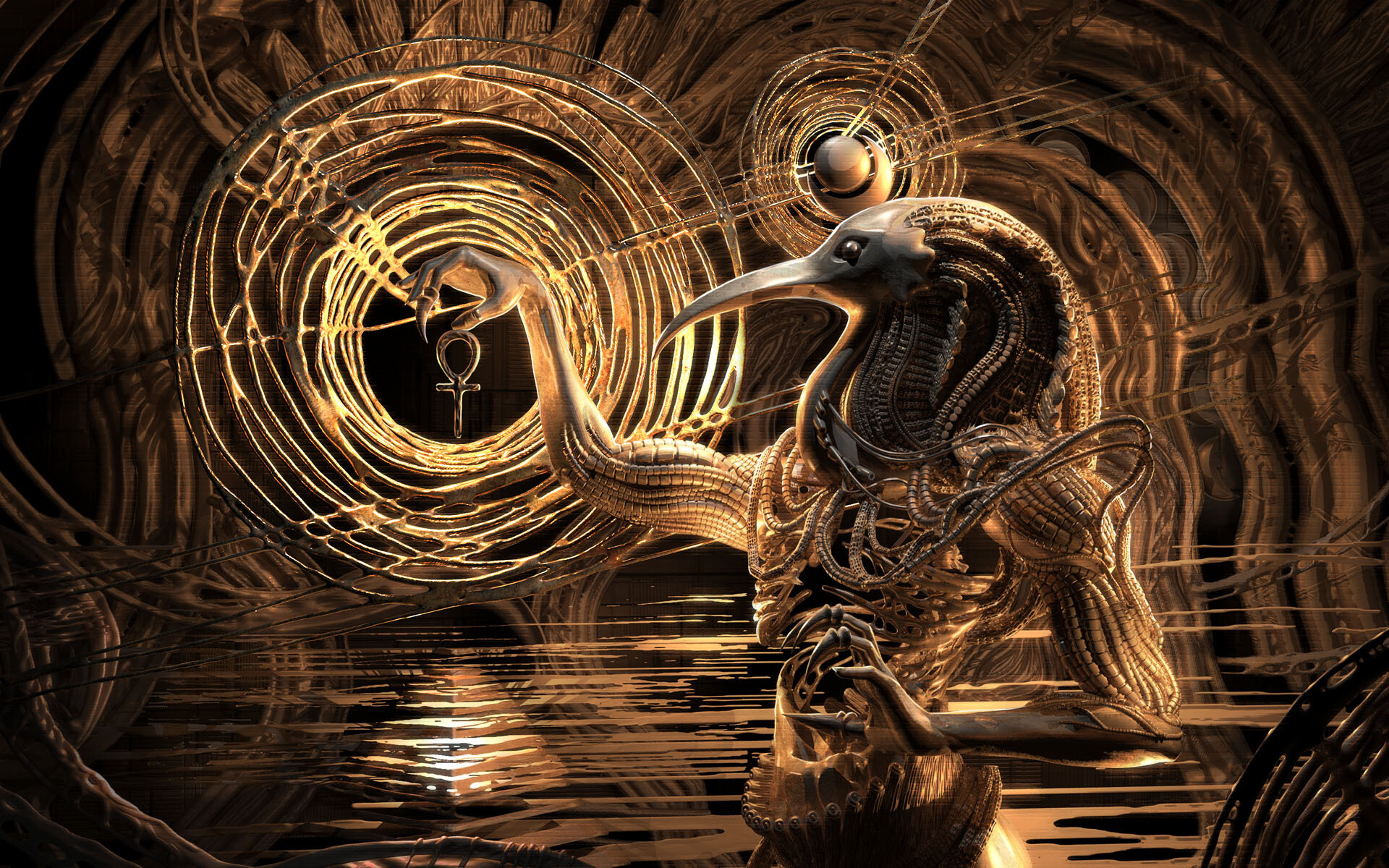Consciousness is like monotonic fluorine, or monatomic oxygen, in that we never come across it in day-to-day life! We never do and we never will. Saying that consciousness is like monotonic fluorine doesn’t sound very scientific – there is a whole big discipline of ‘consciousness research’ and they don’t go around saying ridiculously simplistic things like this. On the contrary, they come out with all sort of abstruse, highly intellectual-type stuff just the way we would expect them to. That’s kind of what we want our consciousness researchers to do – we want to come up with lots of super-complicated technical-type stuff that makes it sound like they know what they’re talking about! That way we know that the human race is getting to grips with this important problem, even if we haven’t cracked it quite yet.
This is all fine and good, and being ‘all technical about stuff’ is certainly what we’re best at. The only thing about this however is that ‘understanding consciousness’ isn’t in any way a technical or intellectual matter. It couldn’t be less technical or less intellectual – what we looking at here is an eminently practical matter. Consciousness isn’t something we can study or understand or describe in the technical way that we’d like to because consciousness is the basis for all our studying or understanding or describing. The tongue can’t taste itself, as Alan Watts says. We could also say that consciousness can’t be studied (like a genetically-engineered fruit fly in a laboratory can be) because it’s ‘who we are’. We can be who we are for sure – that’s why we say that that this is a practical matter – but we can’t study it or understand it in an intellectual way. To study consciousness we would have to be on the outside of it and how can we possibly be on the outside of consciousness? Why do we imagine that there is something ‘on the outside of consciousness’, anyway? Where’s the evidence for this? And just supposing that there was some evidence for it, how would it even constitute ‘evidence’ without consciousness being there to be aware of it? We can’t take ourselves out of the equation no matter how hard we try (as any sociologist would tell you)…
A good way to understand this point is to go back to our original statement that consciousness is like monotonic hydrogen or fluorine. The thing about monotonic fluorine is that it is extraordinarily reactive – in the absence of anything else to react with it will react with self and form diatomic fluorine, which is relatively more stable. In the same way, consciousness may be seen as being extraordinarily reactive; it may actually be seen as the most reactive thing there ever could be. Consciousness doesn’t stay in its original state – it identifies with some fixed form or other, some fixed pattern of being or other, and then it becomes that fixed form or fixed pattern. Then – when it has identified with some structure or other – it ceases to be extraordinarily reactive. It goes the other way – it becomes inert, just as for example the salt potassium fluoride is inert. We couldn’t get potassium fluoride to change back no matter what we do to it – we could blow it up with dynamite and it would still stay the same. [Under laboratory conditions, of course, we can break the bond between K and F but normal everyday conditions aren’t going to do it.]
The unconscious state is the same therefore. Unconsciousness equals the ‘ashes of consciousness’, the ‘embers of consciousness’, the ‘inert residue of consciousness’. It is consciousness that has already reacted, that has already been transformed into the lowest energy state possible. The ‘reaction’ in question – we might say – is this thing that we call ‘believing’. Very oddly, we see belief as being a good thing, something to be valued, something to be proud of. ‘I believe in something,’ I say, and this means that I’m not just drifting around the world in some sort of footloose and feckless way. I have committed myself to some value that I hold to be absolute! And yet what belief really comes down to is cognitive rigidity. It comes down to accepting some view or model of the world as being the same thing as ‘the actual genuine article’. How can accepting a model of reality as being the actual genuine truth of the matter be ‘a good thing’, though? No model is ever going to be equal to the truth – no map is ever going to equal the territory. Models are models, all models are only models. No matter how much we refine a model it’s never even going to get one millimeter closer to the truth.
The process whereby we accept our models or ideas about reality as being the same thing as reality is the equivalent of consciousness undergoing a chemical reaction. When we can plainly see that all ideas about reality are only ideas, that all formulations of ‘what’s going on’ are only formulations, that all theories are only theories and all images are only images, then this is like being monotonic fluorine or oxygen again. But as we have already suggested, to say that this is ‘an extraordinarily rare state of affairs’ is putting it very mildly indeed!
Even if we happen to subscribe to the distinctly minority view that ‘only consciousness is real’ (in keeping with what Amit Goswami calls ‘monistic idealism’ and what elsewhere is called the paradigm of ‘non-duality’) then we are still in a ‘reacted’ state. In this case it is as if oxygen or fluorine has reacted with itself to form O2 or F2 (which is as we have said what happens when is nothing else to react with). A relatively stable compound is formed then – a compound that – in the case of oxygen – is quite capable of kicking around the atmosphere in an unchanged state. This would equate to what the Buddhists call ‘holding onto nothing’ (or ‘attachment to nothing’) – holding onto nothing is the same as holding onto anything else really. To believe that there was nothing to believe in is every bit as much of an unconscious state as believing that there is something to believe in.
When we do talk about consciousness or make theories about consciousness then this is reacting therefore, this is ‘consciousness reacting with the generic products of the thinking process’. Consciousness is not revealing itself in this way because all we’re doing is ‘forming stable compound’ – it might be a different stable compound to the one we had before but it’s still perfectly inert! In everyday life it’s good to have stable compounds – life would obviously be very difficult otherwise! If the world were made up of nothing but uncombined atoms which for some reason weren’t reacting with other compatible atoms in the way that they love to with then biological life could never have emerged in the first place. Biology needs large stable molecules.
We are only using chemistry as an analogy however so there’s no point in taking it too literally. As we as our mental health is concerned reacting willy-nilly with the products of the rational process is not going to create a very pleasant or convivial situation for ourselves. It’s actually creating a situation that is marked by suffering and – as we all know – there’s nothing particularly pleasant or convivial about suffering. In alchemical terms, we might say that ‘reacting’ or ‘believing in our random ideas about the world’ creates a state that is marked by the lowest possible degree of mobility. Lead is the substance the alchemists used to symbolise this state; lead is a good symbol for heaviness, or lack of mobility since obviously a big lump of lead isn’t going to go running around the place in any great hurry.
We might also intuit that these qualities of ‘heaviness’ and ‘lack of mobility’ translate into suffering – suffering is often spoken to in terms of our spirit ‘feeling heavy within us’ and loss of mobility is really just another way of talking about ‘being trapped’ or ‘being a prisoner’, which also translates into suffering. We don’t even particularly need to explain why being heavy or being trapped spells suffering – this speaks for itself. If we had to say something we could say that it is because our true nature of light not heavy, mobile not immobile, and that suffering is a way of talking about what happens when we go against our true nature, or even become the opposite of our true nature.
The alchemist’s symbol for unimpeded mobility like this is Mercurius – the element of mercury (or quicksilver), if we are speaking in strictly chemical terms. Quicksilver runs freely all over the place, as we all know; it’s notoriously difficult to contain. It cannot – we might say – be easily commanded or controlled. Mercurius symbolises our true spiritual rather than material nature; because Mercurius symbolizes spirit as opposed to the material world the alchemists’ position was that Mercurius is trapped in the material world and that the alchemical work is all about freeing the prisoner from his dark and joyless prison. In the straightforward chemical terms that we have just been using, we could equivalently say that the task that we are all faced with is the task of releasing the highly reactive pure element from the chemical bonds which hold it captive, and very effectively conceal its true nature. Potassium fluoride is a white crystalline solid for example, whilst the actual element fluorine is neither white nor a solid, but perfectly transparent and gaseous! Who we (and everyone else) take ourselves to be in everyday life is something knowable and predictable – something that can be pointed at and readily recognized or labelled – whilst our true nature (we might say) is the very antithesis of this. Our situation is the reverse of what it ‘should be’, so to speak, and this is why it is a situation that is synonymous with suffering. We might image that our suffering can be ameliorated, and that we can live our everyday lives without it, but that is simply not possible. The ‘false version’ of who we are cannot ever escape suffering – we cling to the hope that matters can be turned around if we play our cards right, but there is no hope and this is why unconditional despair is so purifying…
This isn’t a simplistic duality of ‘good versus bad’ that we’re talking about here however; it’s not a matter of rejecting the physical and embracing the spiritual – that type of binary logic just embroils us in ‘the physical’ even more. That’s what the physical is made up of after all – yes versus no, good versus bad. Imagining that spirituality means rejecting our crude materialistic nature goes against what we have already said about the unimpeded mobility of mercury because in a more profound sense Mercurius is just as much about the physical as he is the spiritual – he can hang out in low taverns and rub shoulders with villains and thieves with just as much ease as he can with scholars and poets, as the alchemists say. He can run with the hares and the hounds without any contradiction. Mercurius is in this sense both lead and mercury, the beginning and the end of the alchemical journey as Jung indicates here in the following passage taken from Psychology and Alchemy:
When the alchemist speaks of Mercurius, on the face of it he means quicksilver (mercury), but inwardly he means the world-creating spirit concealed or imprisoned in matter. The dragon is probably the oldest pictoral symbol in alchemy of which we have documentary evidence. It appears as the Ouroboros, the tail-eater, in the Codex Marcianus, which dates from the tenth or eleventh century, together with the legend ‘the One, the All’. Time and again the alchemists reiterate that the opus proceeds from the one and leads back to the one, that it is a sort of circle like a dragon biting its own tail. For this reason the opus was often called circulare (circular) or else rota (the wheel). Mercurius stands at the beginning and end of the work: he is the prima materia, the caput corvi, the nigredo; as dragon he devours himself and as dragon he dies, to rise again in the lapis. He is the play of colours in the cauda pavonis and the division into the four elements. He is the hermaphrodite that was in the beginning, that splits into the classical brother-sister duality and is reunited in the coniunctio, to appear once again at the end in the radiant form of the lumen novum, the stone. He is metallic yet liquid, matter yet spirit, cold yet fiery, poison and yet healing draught – a symbol uniting all the opposites.
Just because Mercurius is equally at home with both sinners and saints doesn’t mean that there is no need for the alchemical opus however – it’s not that ‘no work is needed’. It’s not just that we can take a laissez-faire attitude and let things work out as they will. On the contrary the work involved is tremendous. It goes beyond ‘tremendous’. The alchemical work is the work – nothing else in life counts; if we are not separating our essence from the defilements that occlude it then nothing we do means anything. We’re just playing at work otherwise; we’re just fooling ourselves. This isn’t a question of cleverly manipulating our situation or intellectually understanding it because that type of stuff only means reacting; everything that proceeds from the rational faculty means ‘reacting’. To think is to react and to attempt to control is to react, and what else do we know? We react in order to protect ourselves from pain; we react in order to protect the idea that we have about ourselves. We react all the time – reacting is all we ever do…
We can talk knowledgeably about consciousness until the cows come home therefore but no change is talking place. We can research consciousness until hell freezes over and the moon drops out of the sky and we won’t have got any further – this isn’t a matter for research, as we have already said. Research is a crappy intellectual process and it never results in any type of real change. The only way change can take place is if we immerse wholeheartedly ourselves in the actual day-to-day experience of our lives without trying to intellectually understand it or manipulate (or improve) it in any way. We could call this research of course – it’s just ‘non-intellectual’ research. It is research we will never be able to publish any scientific papers about, or get any type of prestigious award for. No one ever got a prize for ‘being conscious’, after all…






